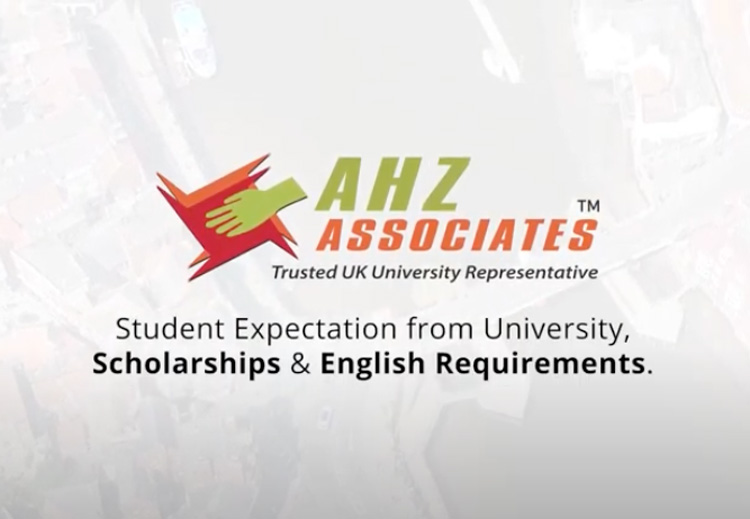Study in Hong Kong: applications, visas and scholarships
If your students are struggling to find reputable universities that offer significant scholarships, they should consider studying in Hong Kong

Throughout my years as a college counsellor in Indonesia, I mostly worked with students who came from families where their parents were capable of funding their university studies, even overseas.
But I have also encountered students who were academically able but lacked the financial means to study abroad. These students aspired to pursue higher education beyond Indonesia.
During the initial phase of counselling, I listened to their aspirations first, and then we combined their aspirations with possibilities. For example, like most Indonesian students, they aspired to go to university in Australia or Singapore. However, these two countries offer few scholarships to international students unless they possess exceptional talent.
So where can my students find opportunities? What if the universities offering financial aid lack a reliable background? Of course, my students and their parents still consider the reputation of the universities. But it’s challenging to find reputable universities that offer significant scholarships.
Hong Kong is one such region that offers many scholarship opportunities for international students.
Studying in Hong Kong: some guidelines
Hong Kong is a region known for being generous to Indonesian students. It is also home to reputable universities, as recognised by the Times Higher Education World University Rankings.
However, before discussing which universities they can consider, I provide my students with guidelines when it comes to studying in Hong Kong:
Education quality: Hong Kong is home to several prestigious universities, known for their high academic standards and rigorous programmes
Language: most universities use English as their medium of instruction, so students need not worry if they don’t know the local language. However, in daily life, Cantonese is commonly used, so it’s beneficial to learn the language in order to adapt better
Cost of living: Hong Kong is known for its high cost of living, including accommodation, transport and daily expenses
Respect for authority: Hong Kong society places a strong emphasis on respect for authority and adherence to rules and regulations
Political situation: Hong Kong has experienced political unrest and protests in recent years, particularly related to issues of democracy and autonomy. While the situation has generally calmed down compared with the peak of the protests, tensions can still flare up sporadically
Career opportunities: Hong Kong is a global financial hub and offers ample opportunities for internships and job placements, particularly in fields such as finance, technology and hospitality.
If students’ primary goal is receiving financial aid to study at a reputable university, and they can manage or tolerate the factors mentioned above, then Hong Kong could be the best-fit destination.
Hong Kong: which university?
The next step is to introduce students to different university options. Based on the THE World University Rankings 2024, here are the top five universities in Hong Kong. All of these universities are in the top 100 of the ranking.
- University of Hong Kong
- The Chinese University of Hong Kong
- The Hong Kong University of Science and Technology
- City University of Hong Kong
- The Hong Kong Polytechnic University.
It’s essential to teach students how to navigate each university’s website, so they can learn more about the undergraduate programmes they are interested in. Most Hong Kong universities have similar undergraduate entry requirements, including:
- Senior high-school graduation certificate
- Junior high-school graduation certificate (additional)
- English proficiency test (for example, IELTS overall band 6.0)
- International Baccalaureate with a score of 37-40 for competitive universities, and a score of 42-45 for full scholarships.
If students want to increase their likelihood of acceptance, it’s recommended to take the SAT.
Although Hong Kong admissions focuses on academic scores, students should submit their academic and non-academic certificates, as well as preparing a motivational letter. Some universities require a teacher’s recommendations. Students should also prepare for an interview.
Applying to study in Hong Kong
Once all documents are prepared, students can apply through each university’s website, as there is no centralised application platform comparable to CommonApp or Ucas.
Most online application systems open in September, with an early application deadline in November and the main-round application deadline in early January. Some universities extend the application deadline to late June, but late applications could affect the visa process. It’s therefore recommended for international students to apply in the early or main rounds.
Once accepted by an institution, students must apply for a student visa or entry permit. They need to prepare documents as detailed here. Normally it takes six weeks, upon receipt of all the required documents, to process a visa or entry permit for study.
Applying for scholarships
For most universities, students do not have to apply separately for scholarships. All applicants working towards (or holding) an IB diploma are automatically considered based on their verified IB total points. Similarly, applicants with Indonesian certificates are automatically considered. Normally, applicants are notified of the scholarship decision when they receive their offer of admission. Students can refer to this website for explanations and a list of universities that offer scholarships.
As well as a range of scholarships offered by each university, the government also has a selection of funding opportunities for international students wishing to study in Hong Kong.



